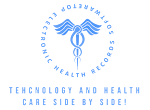Ophthalmology Electronic Health Record (EHR) Market" is the title of a new report from Data Bridge Market Research. Key growth strategies, drivers, opportunities, key segments, Porter's Five Forces analysis, and competitive environment are all dissected in detail in the research. The insights provided in the top-notch Ophthalmology Electronic Health Record (EHR) market survey report are based upon SWOT analysis on which businesses can rely confidently.
With the precise and high-tech information about Ophthalmology Electronic Health Record (EHR) industry, businesses can know about the types of consumers, consumer’s demands and preferences, their perspectives about the product, their buying intentions, their response to a particular product, and their varying tastes about the specific product already existing in the market through a global Ophthalmology Electronic Health Record (EHR) marketing report. This information and market insight assist with maximizing or minimizing the production of goods depending on the conditions of demand.
For further information: Click Here!
Also, read about: eClinicalworks Software Alternative.
The Cutting-Edge Sigmund EHR Software:
Sigmund's EHR software allows mental health and addiction clinicians to deliver streamlined, comprehensive, and effective care. Sigmund's enterprise EHR platform AURA offers a wide range of specialized features that span the entire business spectrum.
AURA lets users create financial, clinical, and medical documentation. Data flows between documents easily, creating a real-time medical record. You can also create treatment plans, conduct evaluations, and customize documentation for different processes in less than 10 seconds.
Sigmund Software Key Features:
Clinical Decision Support:
The Sigmund EHR Order Management Suite is designed to seamlessly deliver mission-critical information. It also provides automatic alarms, early detection warnings, as well as other decision-support tools that can be used to improve care coordination.
Centralized Data:
EHR (electronic health record) was created specifically for inpatient medical teams. You can manage medications, lab results, caloric intake, vital signs, and many other data points easily.
Reporting:
Sigmund EHR makes it easy to track indicators like work queues and productivity, regulatory compliance standards, referrals, and clinical, financial, and staff performance. EMR provides dynamic, detailed data and accessible visualizations. Dashboards can also be viewed 360 degrees. You can also find patterns and recurring tendencies to preventatively take action.
Check out: Electronic Health Records Poised to Benefit Healthcare with New Alliances!

